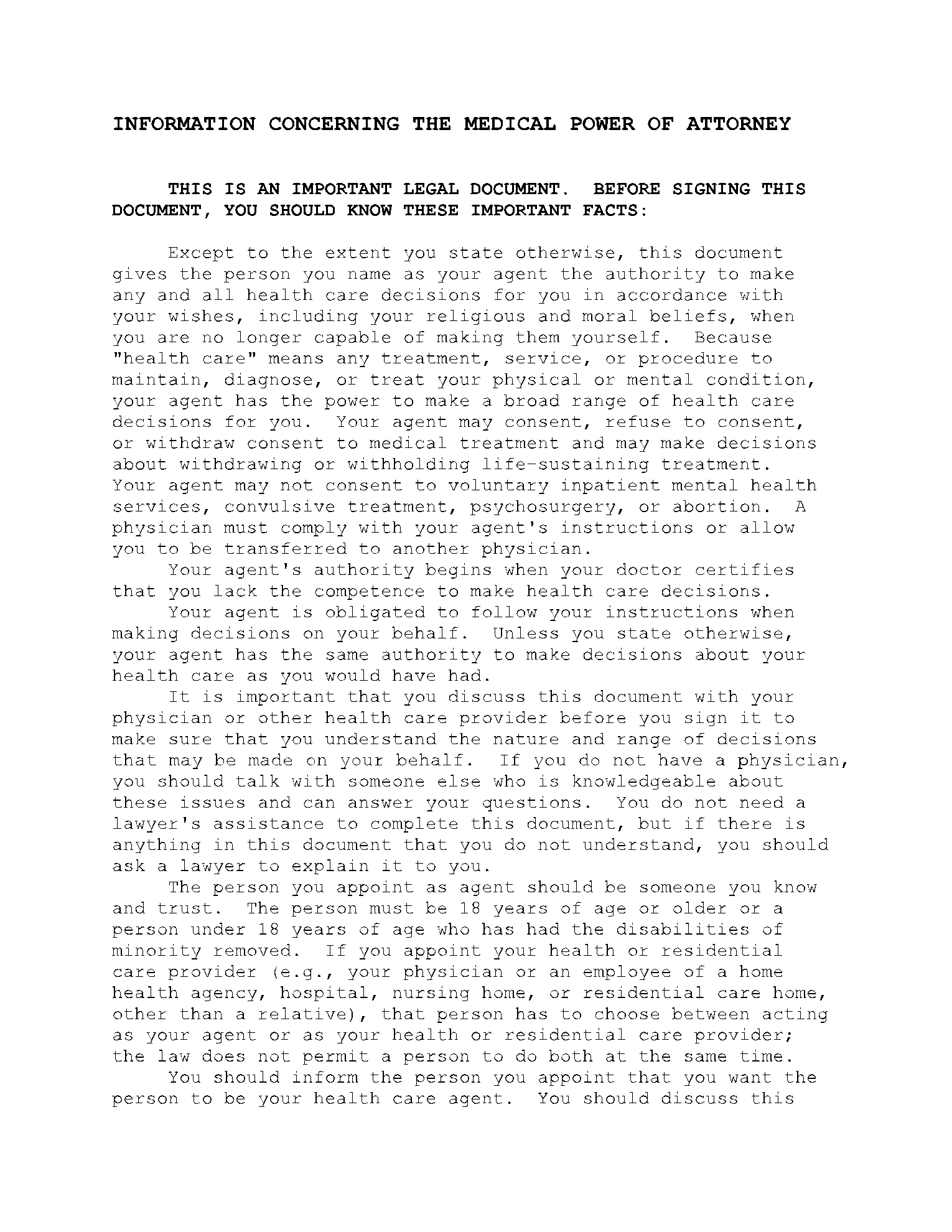Medical emergencies happen all the time. If a person undergoes a severe medical emergency, he may no longer sound for making decisions. In such cases, the state's laws will take their life's decision for them.
Through a medical power of attorney form, you can shift the state's control to someone you trust. This will allow you to entrust your life's critical decisions to an individual that you believe would take reliable actions.
What Is a Medical Power of Attorney?
A medical POA form is a legal document that allows a person to make healthcare-related decisions for another person. The medical power of attorney forms goes into effect only when a licensed physician has declared the principal incapable of making decisions for himself.
Afterward, the agent has to follow the principal's decided treatment options from a power of attorney for healthcare forms. A power of attorney medical is different from a normal power of attorney form or financial power of attorney form.
The difference lies in the sense that the powers mentioned in the medical power of attorney can only be used after a doctor has formally given agents the right. Therefore, it is important to have a trusted person as an agent while using power of attorney for healthcare forms.
When to Use a Medical Power of Attorney?
When we talk about healthcare power of attorney, we only mean difficult medical situations or emergencies. This is why a doctor or a licensed physician will decide if a medical POA is applicable to the situation or not. Here are some situations when a medical POA form will come helpful:
- Mental Health Issues: A medical POA is helpful for someone who has serious mental health issues that may distort his sense of reality, e.g., dementia.
- Coma Patients: Someone has fallen into a coma or is expected to fall into a coma as a result of stroke or brain injury.
- Patients having Risky Surgeries: If someone is expected to have a surgery that may be risky for him in terms of health factors, he should consider using this form.
- The Elderly: There may be a point when an elderly person may no longer be sound to make decisions for himself.
What Should Be Included in a Medical Power of Attorney?
There are some vital components that need to be included in a medical power of attorney form:
- Details of Agent: The full name and address of the agent or attorney-in-fact.
- Details of Alternate Agents: The full name along with the address of alternate agents.
- List of Powers: The list of powers needs to be mentioned that the attorney will now hold control over.
- Optional Guidance: Optional guidance may be provided for an agent to help him in making your health care decisions for you.
- Signatures: This includes your signature and the signatures of two witnesses.
- Notarization Language: You will need to make sure if your state requires notarization of the form or not. Some states require it as compulsory, while some may consider it optional.
- Consent for Organ Donation: A consent for organ or tissue donation may be provided in the power of attorney medical.
- A Living Will: A living will should be mentioned along with the medical power of attorney form so an agent can follow it.
Conclusion
When it comes to the medical power of attorney form, it is definitely a good option to play the safe side. No one ever expects to have to undergo such medical emergencies, but they are proven wrong by nature. Therefore, you may want to get a medical POA form so that you can have a trusted person make your treatment decisions for you just in case.
